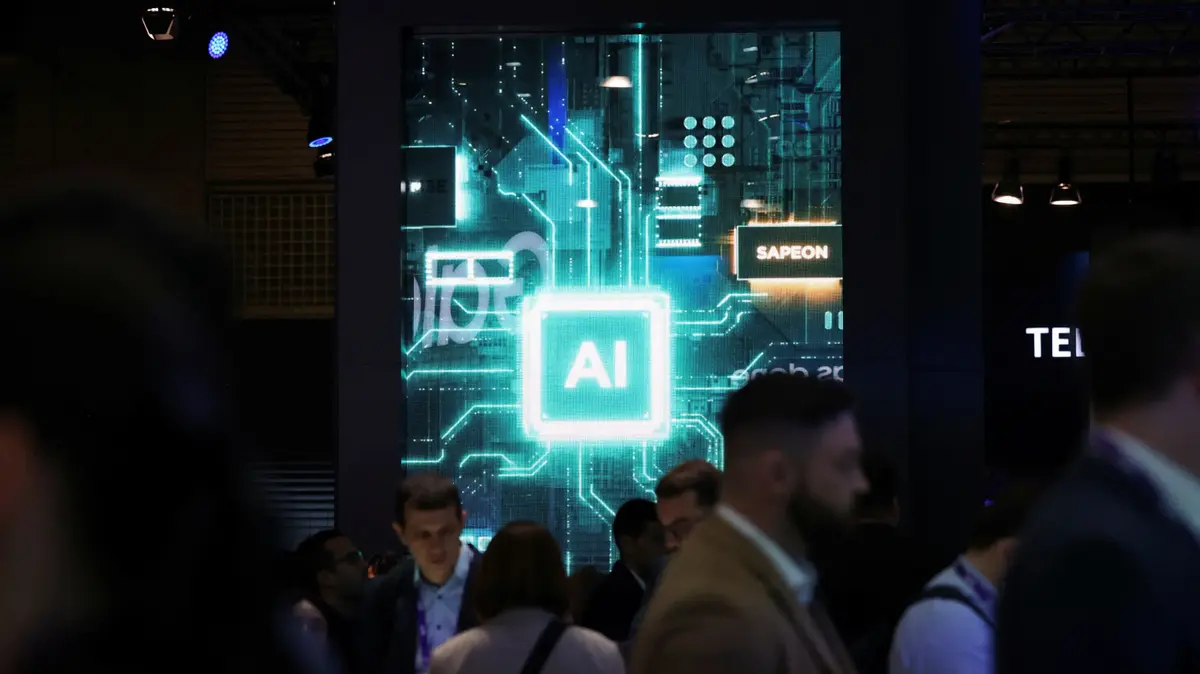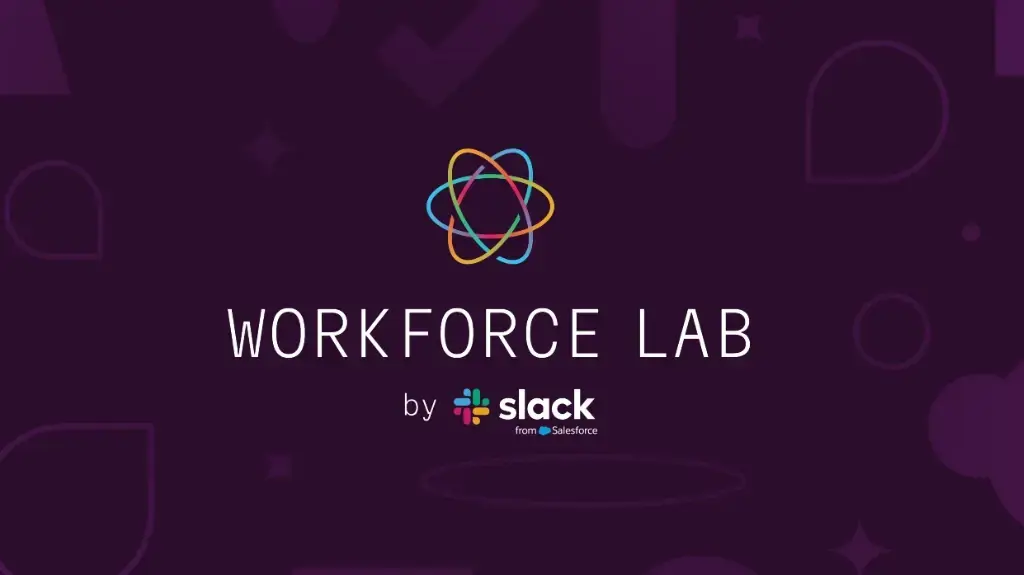If there are a couple of truths about artificial intelligence, it is that it is inevitable and moving forward firmly with us. In some cases, without us noticing.
Juan Gustavo Corvalán is a very authoritative voice when it comes to grounding concepts that, because they are intangible and "niche", are alien to thousands of people. He directs and co-founded the Laboratory of Innovation and Artificial Intelligence of the UBA (IALAB), a space that curiously works in the Faculty of Law. He is a lawyer, but specialized in machine learning at the Massachusetts Institute of Technology (United States), and in artificial intelligence, at the University of Oxford (England).
Is "Artificial Intelligence" capitalized, as at the time – when it was literally not a common noun – many wrote "Internet"? One asks him vocalizing in-te-li-gen-cia ar-ti-fi-cial", but Corvalán does not answer "I-A" (the letters separately) but "ia", in a row. He defines it as "the new electricity". And it shares five dimensions in which it is already beginning to reign.
1. Microtargeting
If you were born in the 70s or earlier, you may not be so familiar with Corvalán's expression of "being profiled", or that companies carry out "microtargeting" actions.
Target means "white." With "AI", companies target more defined user and customer profiles, in order to generate better approach strategies to increase sales or tilt their interest in a certain direction.
"As 'AI' allows large data and metadata to be extracted, processed and analyzed, a 'profiling' cycle is generated from which groups of probabilities are designed," Corvalán explained. The groups are us. The probabilities, our actions.
Companies extract millions of data from what users do. Photo Archive
The "finished" profiling is what sometimes drives that feeling that the online browser "understands you", for example, when receiving an advertisement of what "just fair" one was looking for.
Even when artificial intelligence is operating silently, the user believes that everything that happens online is the product of their decisions. But "this is not always the case," the expert warned, before explaining that "one decides some things, while the others are offered to us based on previous choices and predictions of what one might want."
"There is no exception to this, unless you navigate in 'incognito' mode, but you could still be profiled," Corvalán acknowledged.
The trend does not seem to be abating. A 2022 survey by giant IBM showed that 35% of companies had adopted AI in some segment of their business; and an additional 42% were considering doing so. The rise in the use of AI, that year, was four percentage points more than in 2021.
2. The age of chatbots
In the pandemic, many provinces and health effectors had their "boti", such as the Buenos Aires chatbot that among other things managed shifts for Covid vaccination.
It was as useful as it was hated, especially when it didn't work or fell short of expectations. We will come back to this.
With more or less limitations, the robots programmed to interact with us are not new, but what was new in these months was the achievement (intellectual, it must be said?) of the new version of the so-called Chat GPT, fascinating and frightening at the same time.
From the tedious robot with its "hello, what can I help you with" to the insatiable GPT Chat, these tools are a clear example of the self-improvement (for now, with unexplored limits) of artificial intelligence.
Corvalán recalled that more than 70 countries are using chatbots to interact with citizens, not counting the numerous companies that use them as receptionists.
But do they really work? Clarín asked, based on the chatbots of telephone attention, which usually end up referring to a human. For Corvalán, "Boti is a successful case and in general they usually work. In the public sector, they help a lot to guide citizens in a world where the new bureaucracy is the digital queues."
Of course, all this has its limitations. Corvalán called them "human in the loop", a concept that is used in the world "to allude to the debate of at what point in the chain or circuit (loop) there should be human interaction".
It is that, of course, "not everything can be the product of automated decisions. You have to intervene before the algorithm makes decisions that can negatively affect people."
3. Personnel selection
According to the IBM report based on the responses of more than 7,000 companies (1,000 in Latin America), a quarter of companies resort to artificial intelligence to patch the shortage of human resources appropriate to their needs.
Now, when it comes to recruiting people, they also take advantage of the tools of "AI". Specifically, instead of subjecting a human to look at hundreds of resumes, an algorithm applies filters.
It seems a little creepy, but it probably surprises less to those who are already using social networks like LinkedIn. It's simple: just as job seekers take advantage of the proposals made by the algorithm, companies also filter keywords (tags), descriptions or specific references that applicants have made. There are those who say something that seems perverse, and that is that even the "correct" profile picture (the smile, the gesture) influences.
Resumes are now analyzed based on keywords filtered by AI. Photo Archive
But, whether on LinkedIn or in closed programs of the companies themselves, many determinations of the order of human resources are subject to artificial intelligence.
However, data processing can take a completely different form. In the world of food companies, for example, "everything is parameterized, so as not to waste. From what they are going to sell to how much will have to be replaced later. Everything, thanks to the 'ai', explained Corvalán.
And when it comes to processing and predicting, "governments also use 'ai' a lot. It's a new paradigm," he added, saying: "There are algorithms involved in processing cumbersome data, such as tax collection, but, also, to know where to go to fix streets or, essentially, in the prevention of climate catastrophes."
4. The revolution in science and health
Until not so long ago, data that accumulated in hospitals was discarded. Not anymore. Or, at least, little by little, all data that walks goes to the grill.
It makes sense, since health centers are environments where immense repositories of rich health and scientific information are generated: from a simple laboratory analysis to the various formats of diagnostic imaging, all digitized studies involve crucial variables for the understanding of diseases and the improvement of treatments (age, sex, diagnosis, medication administered).
A pioneering health center in the incorporation of AI was the Italian Hospital of Buenos Aires. And, recently, Clarín told of the study in patients with cerebrovascular accident (CVA) that was done in the clinic La Sagrada Familia-ENERI "Dr. Pedro Lylyk". Based on the processing of information by AI, they managed to modify the threshold of attention that previously left many patients out of treatment.
In scientific research, artificial intelligence already serves to improve the discovery and use of drugs. Photo EFE
The world of the pharmaceutical industry is not exempt from "AI", of course, although "it is just beginning that path," said Corvalán. For now, the concrete uses are of two types: "Analysis and discovery of drugs, on the one hand, and combination of drugs, on the other."
That is, "combinations of drugs or compounds are being made through simulation. Even the 'AI' can suggest new combinations."
Eloquently, he defined the health-AI crossing as a "real tsunami".
5. Algorithms to lift education
Leaving aside the thorny issue of the uses of Chat GPT in the educational field, Corvalán said that in his institute they profiled 35 educational systems in the region: they analyzed the ways through which those countries had (always through AI) processed data to evaluate school dropout.
In education, AI is already used to analyze data that allows analyzing different variables. Photo Mauricio Nievas / File
"AI in education is playing two or three important roles. On the one hand, with the data in hand, it is used to understand them and try to tell you things that are not visible to the human eye. A machine has tools that allow it to go over millions of data that you could not analyze manually in a hundred years," he said.
This processing "results in obtaining relevant information patterns." For example, finding a connection between certain qualities and choices of the student and then dropping out of the career.
An extreme case, outside the educational plane? "In China, when you go to ask for a loan, they analyze more than 5,000 variables, including if your cell phone runs out of battery and you tend not to charge it, data for which they consider you a possible defaulter because they know that those people do not pay the credits. " This is also AI.
To the obtaining of patterns to predict actions is added the possibility of extracting "great metrics", he said, enthusiastically, and added: "Thus, I not only mix the data and forecast but also track what those who generate data do. Thus, I adapt my predictions to how the person behaves. They are 'AI' algorithms that track to improve forecasts."
This is what companies call "product tracking." The goal is to have stronger metrics and then be able to scale.
Footer tips
"My tentative conclusion is simple: today, the company that does not have its business model based on 'AI' will not be able to compete. It's like being in 1930 and deciding that you're not going to have electricity," Corvalán said.
In the midst of so much novelty, caution is a good advisor. Corvalán turned to a couple of eloquent examples, which he often repeats like a mantra.
The first, not idealize or enthrone the "ai". Neither, dismiss it. Rather, to know that although AI is a kind of cognitive thinking gestated by computer systems that mimic human intelligence, "it does not understand contexts or underlying values. It does not distinguish between good and evil."
AI analyzes data, but does not understand contexts or values. Photo Pexels
"It can bias and, in fact, it is wrong, which gives us a lot of work because we do not use it in an ideal world but intervene with beings that feel," he said.
The second thing is that, "while many say, with respect to music or entertainment platforms, 'don't touch my algorithm' as if it were part of their identity – although it is true that the alpha generation holds an algorithmic identity at all costs – not everything the cell says is good for our lives."
In fact, he proposed "empowering yourself in front of machines that suggest you listen to the same kind of music all the time."
"It's like Star Wars. You have to balance the light side with the dark side of the algorithms," he compared.
It is that, "if we let the algorithms make us a dessert and nobody watches the ingredients (in this case, the data), if nobody controls the raw material or the final product, we can eat a cake of capers with cyanide".
ACE
See also









